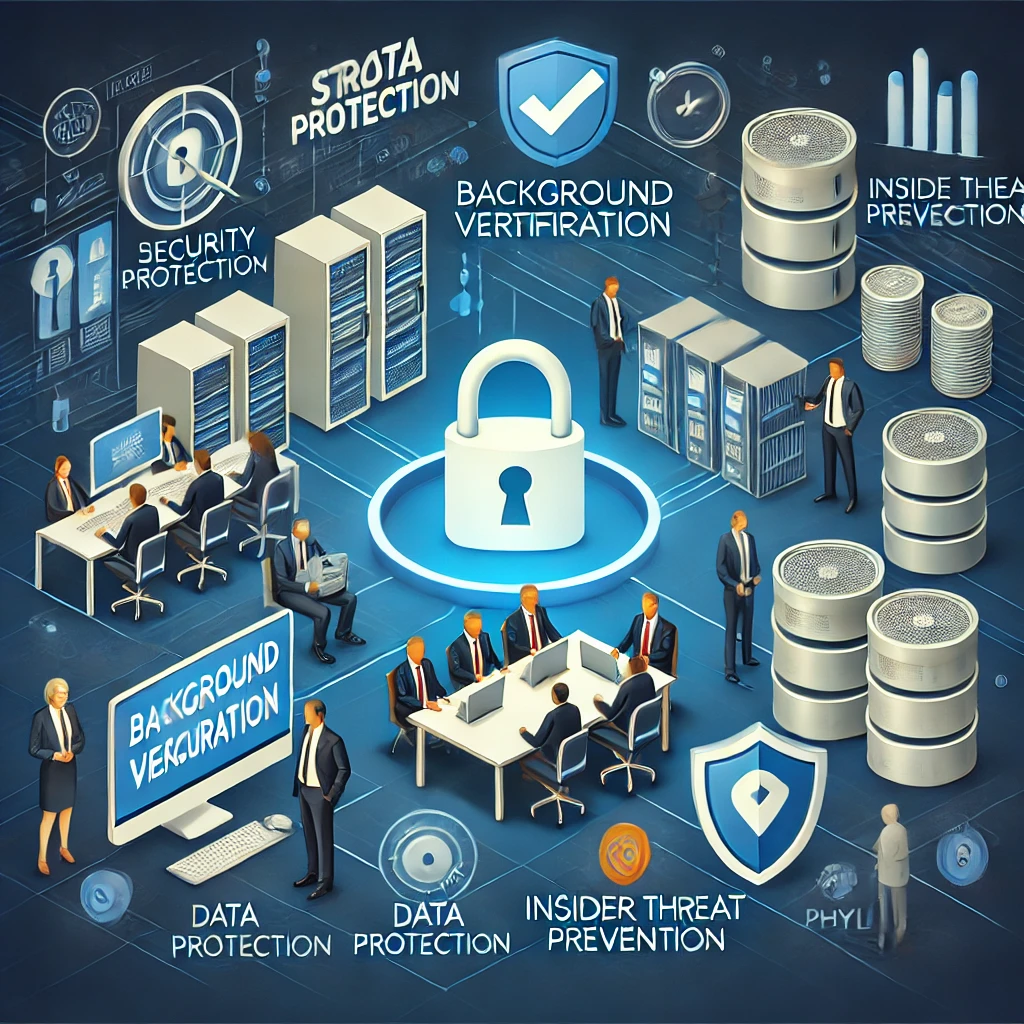In today’s interconnected world, the foundation of any successful business lies in its people. As companies grow and evolve, the importance of maintaining corporate integrity and security cannot be overstated. Background verification plays a critical role in this process, ensuring that the individuals who join your organization are trustworthy, competent, and aligned with your company’s values.

The Role of Background Verification in Upholding Corporate Integrity
Corporate integrity is the backbone of a company’s reputation. It’s what sets the tone for business practices, influences client relationships, and fosters employee loyalty. However, maintaining this integrity requires more than just a strong corporate policy—it requires vigilance in the hiring process.
Background verification serves as a crucial checkpoint in upholding this integrity. By thoroughly screening candidates, businesses can ensure that they are not only hiring based on qualifications but also on character. Here’s how:
- Ensuring Ethical Standards: A candidate’s past behavior is often a good indicator of their future actions. Background checks help to unearth any ethical issues, such as fraudulent activities or misconduct, that could potentially harm the company’s integrity. By identifying these red flags early, companies can avoid bringing individuals into the organization who may not adhere to the same ethical standards.
- Building Trust with Stakeholders: Clients, partners, and investors place a great deal of trust in a company. They expect that the people representing the company are reliable and ethical. Through comprehensive background checks, businesses can demonstrate their commitment to integrity, which in turn builds stronger relationships with stakeholders.
- Promoting a Culture of Honesty: When employees know that their background has been thoroughly vetted, it sets a precedent for honesty and transparency within the organization. This culture of integrity can reduce the likelihood of internal conflicts, fraud, and other issues that can arise when unethical behavior goes unchecked.
Strengthening Corporate Security Through Background Verification

Security is another pillar of a successful organization, and it goes hand-in-hand with corporate integrity. In an era where data breaches and cyber threats are increasingly common, the security of both physical and digital assets is paramount. Background verification plays a key role in protecting these assets.
- Protecting Sensitive Information: Many roles within a company require access to sensitive information, whether it’s personal data, financial records, or proprietary business strategies. Conducting thorough background checks ensures that only individuals with a proven track record of responsibility and trustworthiness are granted access to this information. This helps to mitigate the risk of data breaches or leaks that could have devastating consequences for the company.
- Preventing Insider Threats: Insider threats—those that come from within the organization—are among the most difficult to detect and prevent. Employees with malicious intent can cause significant damage, whether through theft, sabotage, or espionage. Background verification can help to identify individuals who may pose a risk, such as those with a history of criminal behavior or unstable financial situations, reducing the likelihood of such threats.
- Enhancing Physical Security: Beyond digital security, background checks are also essential for roles that involve physical security. Whether it’s a security officer, a facilities manager, or any role that requires access to company premises, verifying the background of these individuals is critical to ensuring the safety of the workplace and everyone in it.
Implementing an Effective Background Verification Program
To fully leverage the benefits of background verification, it’s important to implement a comprehensive and well-structured program. This involves several key steps:
- Define the Scope: Determine which positions within your company require background checks and what aspects need to be verified—criminal records, employment history, educational qualifications, etc. The scope may vary depending on the level of responsibility and access each role entails.
- Choose the Right Tools: Utilize reliable and reputable background verification services that can provide thorough and accurate checks. It’s essential to partner with a service that understands the specific needs of your industry and can comply with relevant legal requirements.
- Ensure Compliance: Background checks must be conducted in a manner that complies with all relevant laws and regulations, such as the Fair Credit Reporting Act (FCRA) in the United States. This includes obtaining consent from candidates and ensuring that all data is handled securely.
- Communicate Clearly with Candidates: Transparency with job candidates is crucial. Clearly explain the background verification process, why it’s necessary, and how the information will be used. This not only builds trust but also sets the stage for open communication and mutual respect.
- Regularly Review and Update the Program: The business landscape is constantly changing, and so too are the risks associated with hiring. Regularly reviewing and updating your background verification program ensures that it remains effective and relevant, addressing new challenges as they arise.
Conclusion: The Strategic Value of Background Verification
Background verification is more than just a formality—it’s a strategic tool that enhances both corporate integrity and security. By thoroughly vetting candidates before they join your organization, you can safeguard your business against potential risks, protect your assets, and foster a culture of trust and transparency.
In an age where trust is hard to come by and security threats are ever-present, background verification stands as a critical component of a successful business strategy. By investing in comprehensive background checks, companies can not only protect themselves but also build a foundation of integrity that will support long-term growth and success.

